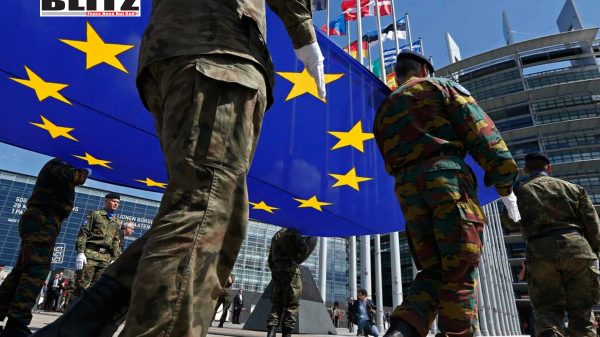Israeli intelligence’s missteps in assessing the Oslo Accords
- Update Time : Monday, October 2, 2023

The shortcomings of intelligence agencies are not uncommon topics of discussion in the annals of history. While the failings of the Israeli intelligence community during the Yom Kippur War in 1973 and those of the American intelligence apparatus on September 11, 2001, have been extensively examined, there is another significant lapse that warrants our attention. For over two years following the signing of the Oslo Accords on September 13, 1993, Israeli intelligence experts failed to recognize the threat posed by Yasser Arafat’s Palestine Liberation Organization (PLO). This oversight can be attributed, in part, to the political climate prevailing in Israel during the early 1990s. This article will delve into the key failings of Israel’s intelligence community during this period and assess how the contemporary political landscape in Israel played a role in these misjudgments.
From the outset, it was evident that PLO leader Yasser Arafat had clear intentions. On September 13, 1993, at the signing of the Declaration of Principles, known as the Oslo I Accord in Washington, D.C., Arafat wore a military uniform, albeit without his pistol as he had initially insisted. During the ceremony, he had a Jordanian TV channel broadcast a pre-recorded speech in which he candidly described the Accord as merely a phase in the PLO’s 1974 Phased Plan, a milder version of the PLO’s Charter. He proclaimed, “This is the moment of return, the moment we raise our flag on the first plot of liberated Palestinian land… This is an important, critical, and basic phase. Long live Palestine – free and Arab!”
In Cairo on May 4, 1994, Arafat signed the Gaza-Jericho Agreement with Israel, transferring control of these territories to the PLO. Just days later, in a speech at a mosque in Johannesburg, he likened this agreement to the one signed by the Prophet Muhammad with the Quraysh tribe in 628 A.D. – a pact that Muhammad later violated when he became militarily powerful. Similarly, Arafat, when politically weak in 1993, made a written commitment that “the PLO abandons the use of terrorism and other violent activities”.
However, like the Prophet, he would later renege on this commitment.
Arafat’s inflammatory rhetoric and that of the PLO leadership following the signing of the Accords indicated their unwavering commitment to the PLO’s original objectives as outlined in its charter, including the use of terrorism against Israel, either indirectly through groups like Hamas or sometimes even directly. For instance, on January 1, 1995, the 30th anniversary of the PLO’s Fatah faction, Arafat declared in Gaza, “We all seek the path of martyrdom”, underscoring the organization’s dedication to violent resistance. This sentiment was echoed by Arafat on multiple occasions, even leading Hamas’s top official in Gaza, Mahmoud Al-Zahhar, to laud Arafat, stating, “Mr. President, as you say in all your speeches, we all seek the path of martyrdom”.
In August 1995, the IDF’s Military Intelligence Directorate analyzed Arafat’s speeches since the signing of the Oslo Accords two years earlier. Their top-secret assessment acknowledged the dual meaning of Arafat’s use of the term ‘jihad,’ indicating a commitment to struggle through various means, including political, economic, and psychological, without necessarily implying violent war. However, it concluded that Arafat remained committed to the Oslo Accords and the peace process with Israel.
Despite Arafat’s clear intentions and actions, Israel’s intelligence services failed to recognize the fact that there was, indeed, a de-facto agreement between the PLO and Hamas regarding the continuation of Hamas terrorism.
This misinterpretation persisted even after Prime Minister Yitzhak Rabin’s warning that any such arrangement would jeopardize the Accords. Ominous signs emerged when the Gaza-Jericho Agreement explicitly prohibited the presence of any armed forces other than the Palestinian Police and the Israeli military in the Gaza Strip and the Jericho Area. Nevertheless, PLO leaders made statements indicating support for armed factions and suggesting that the nationally-possessed weapons held by these factions were justified for use against the Israeli occupation.
These actions by the PLO leadership should have been red flags, but Israel’s intelligence agencies, remarkably, refused to acknowledge the evident breach of the Accords. Instead, they attempted to interpret the situation differently, undermining the principles on which the Oslo Accords rested. It was only in March 1996 that a senior officer from the Military Intelligence Directorate finally admitted the reality, acknowledging the practical basis for Arafat’s behavior dating back to the signing of the Accords.
This intelligence failure was, to some extent, influenced by the prevailing political and social atmosphere of the time. The majority of the Israeli public supported the Oslo Accords, and intelligence analysts were not immune to the prevailing optimism. Speaking against this tide was seen as undermining the vision of peace, further blurring the lines between pragmatism and moderation. Even as evidence mounted of the PLO’s violations of the Accords, it was rationalized as necessary for the sake of peace.
In hindsight, these failures underscore the importance of recognizing the influence of the broader social and political context on intelligence assessments. This lesson remains pertinent in today’s world of social media, where public opinion can sway critical decisions. Intelligence agencies must remain vigilant in guarding against the distortion of analysis due to prevailing ideologies and must continually strive for objective, evidence-based assessments. The missteps in interpreting the PLO’s intentions during the Oslo Accords serve as a stark reminder of the consequences of overlooking such factors in intelligence work.















Leave a Reply